Extinction Rebellion activists cleared after Sydney protest arrest
A magistrate has found police officers were wrong to arrest a star cast of 12 climate change activists, including former Australian senator Scott Ludlam, during a rally held last year.
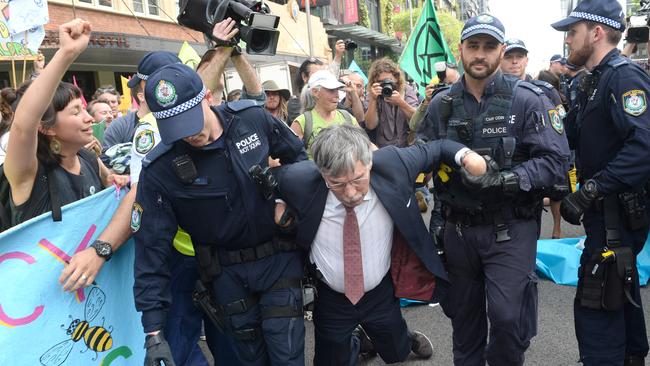
Central Sydney
Don't miss out on the headlines from Central Sydney. Followed categories will be added to My News.
- Mongols bikie refused bail on gun possession, drug charges
- Man allegedly negotiated with undercover cop for $130M cocaine
Twelve Extinction Rebellion protesters arrested after they refused to move off a Broadway road during a climate change rally have had their cases dismissed after a court found they were allowed to be on the roadway.
A star cast of activists including former Greens senator Scott Ludlam and environmental scientist Martin Wolterding, faced Downing Centre Local Court on Monday accused of blocking a section of the city road during the 2019 climate change rally.
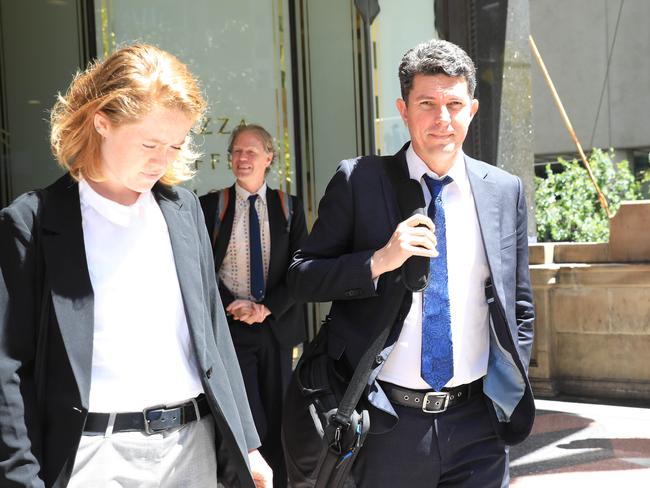
The 12 protesters had pleaded not guilty to a charge of not complying with police directions under the Road Transport Act 2013 between about 2pm and 3pm on October 7.
The accused included Wollongong clinical psychologist Lee-Anne Organ, Western Sydney University PhD student Thomas Glen Colley, Sydney University data scientist David Kohn, protest organiser Lilian Rose Campbell, once Parramatta Socialist Alliance political candidate Duncan Roden, Sydney artist Tobias Clack and Forest Hall musician Richard Mills.
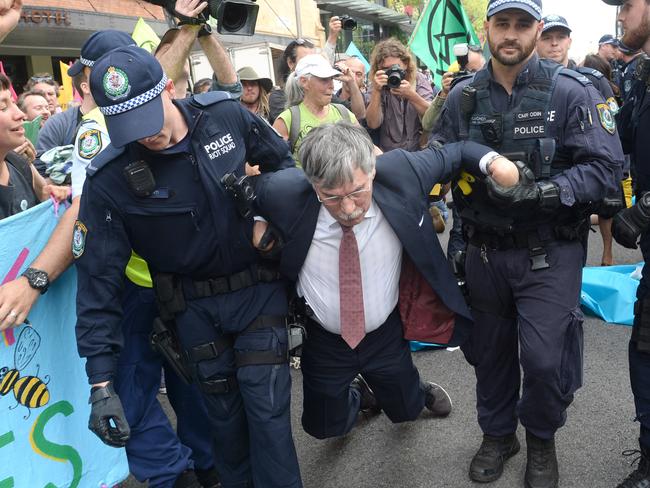
They were among 44 protesters charged following the 400-strong Extinction Rebellion protest, a court heard.
Extinction Rebellion is a global movement demanding action on the climate emergency through “mass disruption of city centres through nonviolent civil disobedience”, according to its website.

Police alleged the authorised climate change protest turned sour when participants blocked a roadway by placing a tank in the middle of the street, and sitting and laying on the asphalt such that traffic could not pass.

This obstruction, police alleged, went beyond Extinction Rebellion’s “Form 1” – a formal document which sets out the intentions of a public protest, and which did not specify any “stoppages”.

But Magistrate Vivien Swain said: “Pedestrians (were) allowed on the road by authorisation of the march and I’m not satisfied … (it) would provide police with an opportunity to give a (move on) direction”.
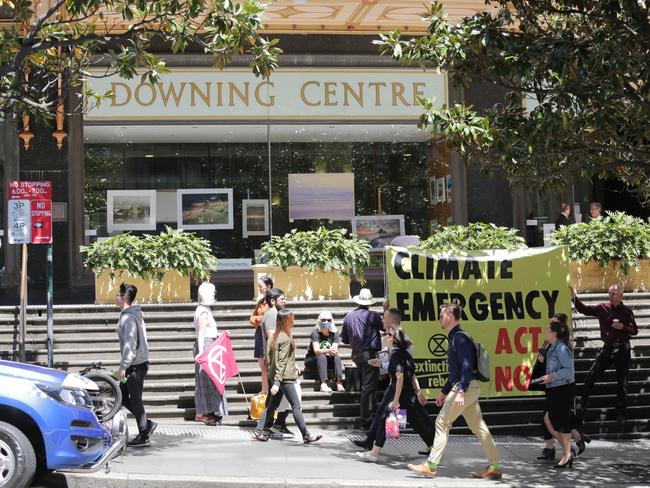
“(The protesters were) already allowed to be on the road, (which is) why the road was closed,” she said.
“(I’m) not satisfied there could be a lawful conviction.”
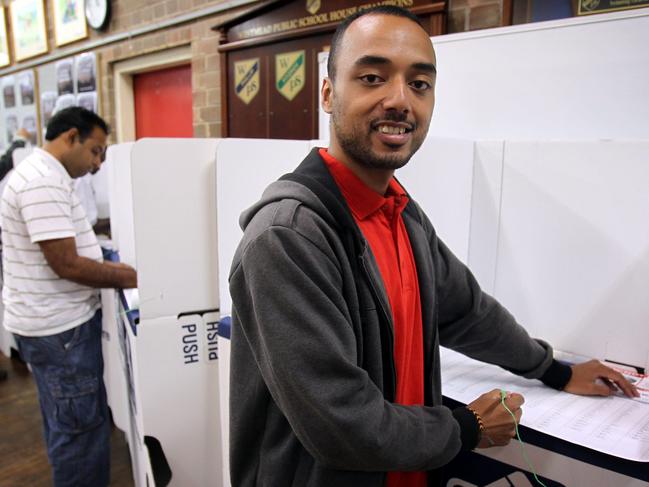
The court was shown the accused’s arrest footage, in which each protester allegedly refused or ignored requests to move off the roadway before being arrested and dragged or led away by police.
Coal miner Phillip James Mansfield, Hugh Christian Vaughan and Kim Maree Warner were also among the accused.
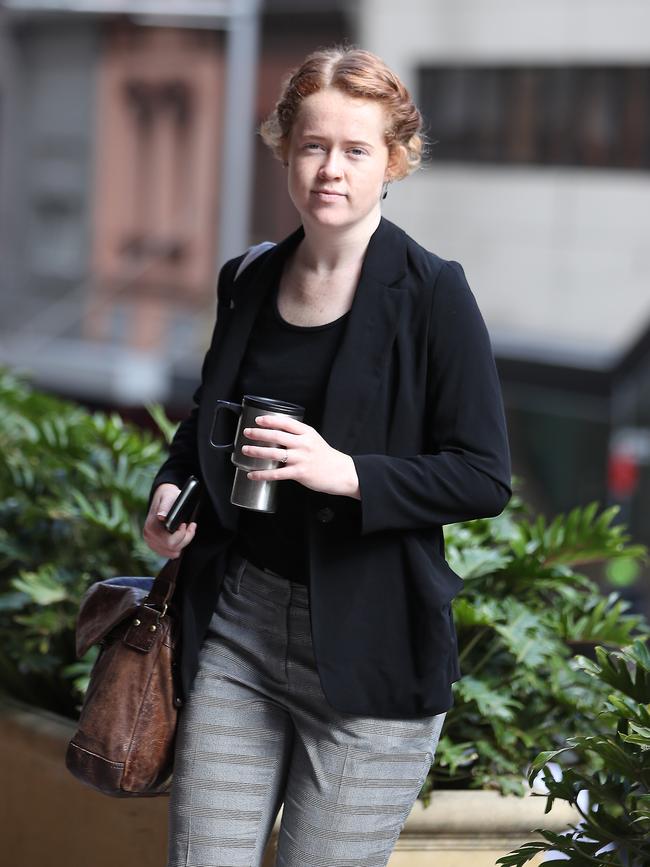
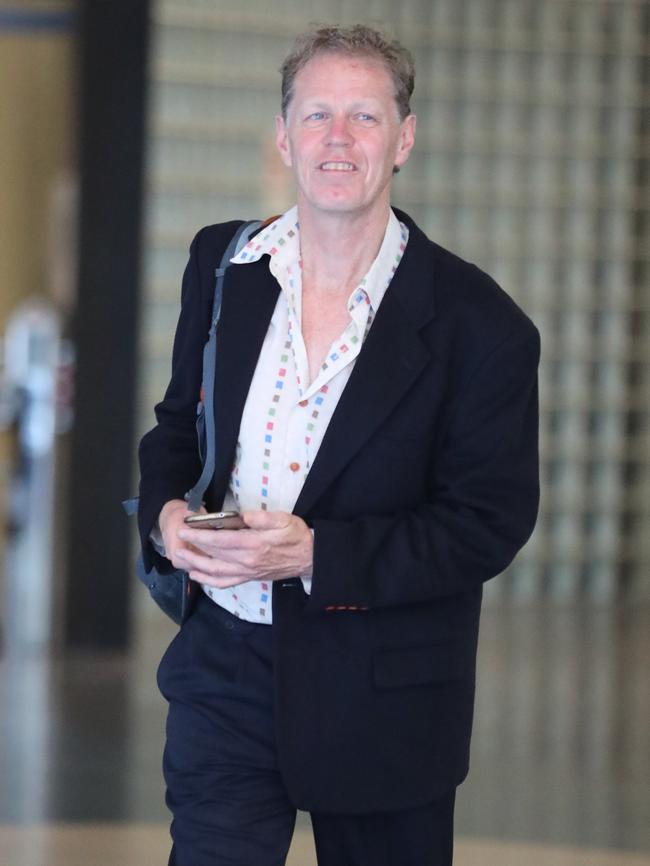
In body-worn footage showing marine biology lecturer Wolterding’s dramatic arrest, the 75-year-old yells “you’re hurting me” as police drag him away.
He then tells the police officer on his arm they will one day need to decide whether they “follow orders or follow the heart … (and) decide whether to protect your grandchildren and great grandchildren”.
Each of the 12 accused’s charges were dismissed.
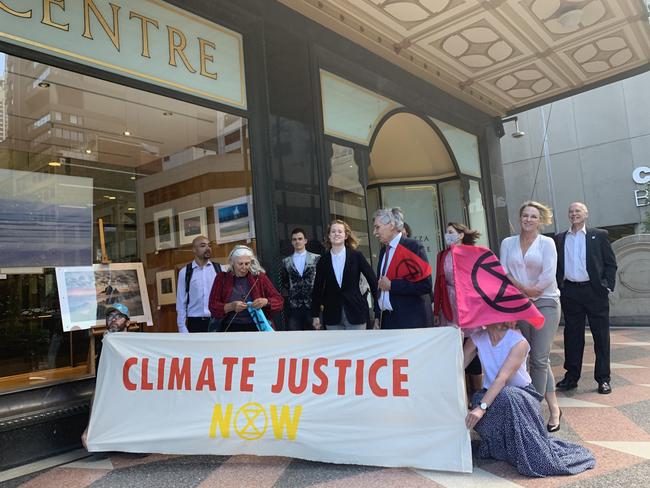
Outside court, a small group of Extinction Rebellion protesters cheered on their fellow activists as they walked out of the court, and organiser Ms Campbell said it was a great win “for the climate movement and the right to protest”.
“Cops can’t just push (protesters) off the road whenever they feel like it. We have a right to civil disobedience,” she said.

